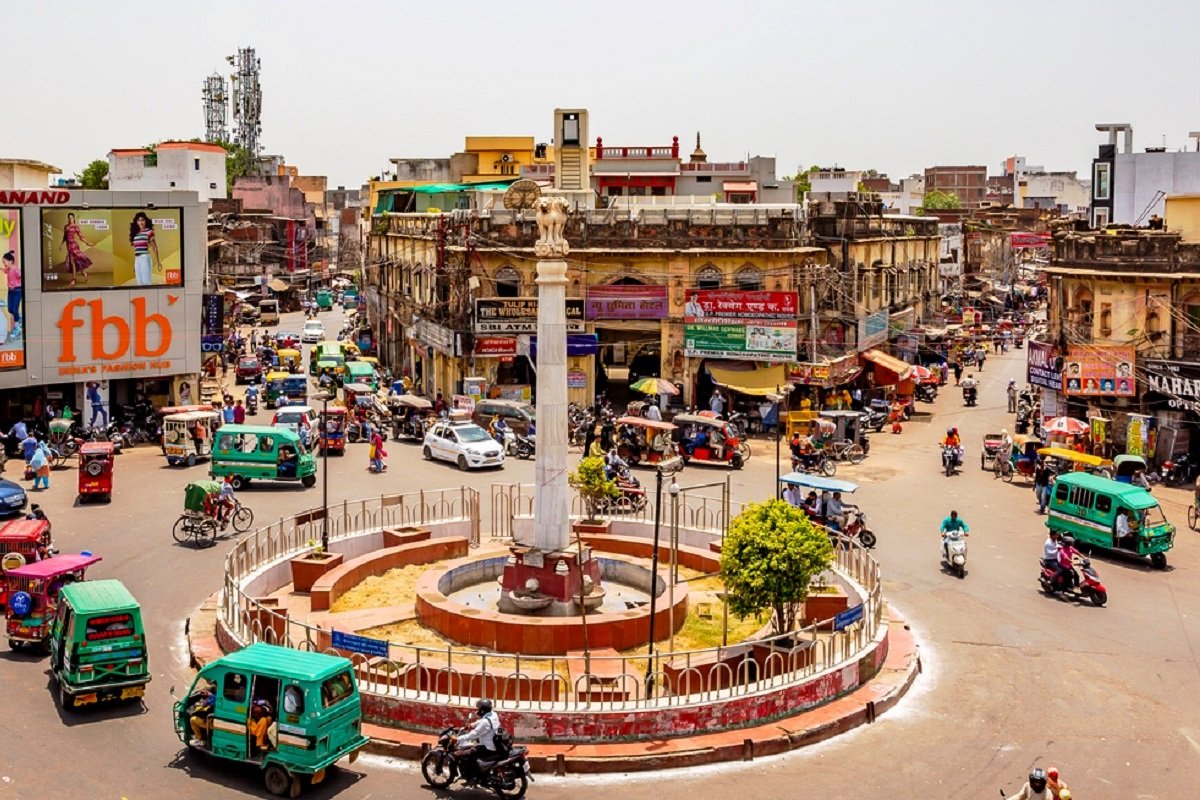Dr Shujaat Ali Qadri
With challenges galore, contemporary Muslims and India have charted a path that veers into future of opportunities. Of many of these challenges, the strength and weakness of secularism in the country are one of the most pivotal ones.
While those on the side of the government may argue that Indian secularism is harm-proof and stands test of politics uninjured. For other observers, academia and intelligentsia in the country included, secularism in the country is at the crossroad and, if not guarded, it risks permanent crumble.
Where does the truth lie? Perhaps in the balance of these two opinions which should form the bedrock of sound socio-political discourse of the country.
Indian secularism, as we know, is a constitutional guarantee and a practiced polity. Ever since the Constitution of India came into being and the republic began its journey, principles of secularism have been its guiding light. In fact, the first Prime Minister Jawaharlal Nehru has registered his name in the annals of history because of his never-wavering commitment to secularism. Scholars agree had Nehru not held onto secularism like a rock, India would perhaps descended into chaos that we witness daily in our neighbourhood – Pakistan and Afghanistan.
Secularism is believed to be a gift of Europe or the West where renaissance thinkers constructed it as a modern thought and a sine qua non of democratic state. The first to use the already-extant word “secularism” in a modern sense was the British agnostic writer George Holyoake in 1851. Secularism is the principle of seeking to conduct human affairs based on naturalistic considerations, uninvolved with religion.
Secularism is most commonly thought of as the separation of religion from civil affairs and the state and may be broadened to a similar position seeking to remove or to minimise the role of religion in any public sphere. The term “secularism” has a broad range of meanings, and in the most schematic, may encapsulate any stance that promotes the secular in any given context. It may connote anti-clericalism, atheism, naturalism, non-sectarianism, neutrality on topics of religion, or the complete removal of religious symbols from public institutions.
Going by these strict postulations, the secularism in India will look like a sham. But, in India, a pristine form of secularism is actually in practice, and that is that treating every religion equally and providing equal facility.
In India, Hinduism, Islam, Sikhism, Christianity form four major religions. All these religions are observed in all their varieties. The state extends equal respect to all of them. No morning in India starts without a bhajan in a temple, azaan in a mosque or keertan in a gurdwara. Secularism in India wakes up early in the morning!
Alas, the picture is never as perfect as a poet or a painter can imagine it to be.
The contemporary times have tried to upstage the precipice of the secularism, at least several of its branches, if not its roots. The reason obviously lies in the conduct of political parties that leave no alibi to be exploited to win votes and come to power.
Even despite the code of conduct in practice, the political parties violate discipline by invoking religion and other related symbolism to sway the public mood in their favour. Some politicians go a step ahead and deliberately use abusive languages against people of certain religion. Some others even threaten violence on the same basis. This evil menace, sadly, continues without check. It is repeated in election after election, whenever an electoral yield seems possible out of its invocation.
It is needless to say that the target of such a secularism-thrashing is Muslims. But do they waver? No. Yes, they turn disappointed, sometimes increasingly so, but their commitment to secular politics never waver. That’s why we see Muslims taking part in elections in huge numbers.
Muslims have actually showed belief and confidence in Indian secularism since very beginning. Renowned sociologist Tanweer Fazal, who have studied pattern of Muslim behaviour in independent India, writes in his essay “Being Muslim in Contemporary India” that Muslims of contemporary India unequivocally renounced the idea of a Muslim nation in their endeavour to confront the stigma of Partition.
Fazal however finds some strains in religio-theological moorings of Muslims as factors that dissociated them from democratic polity in India. His findings reveal that communal symphony for Muslims and others lie in plural living and participation in every walk of nation’s life.
Taking some cues from Fazal’s research, we may say that if Hindus, Muslims Sikhs and Christians take part in building the nation in a way that they help run government schemes like Pradhan Mantra Awas Yojna, Beti Bachao Beti Padhao Yojna, Jan Dhan Yojna for myriad of benefits, it would not only serve the cause of secularism, it will see these welfare schemes implemented with precision and under watchful eyes. Welfare schemes, after all, are religion-neutral and are largely formulated for sections of society who are poor and thus follow religion than most other sections of the society.
Similarly, active campaigns are required to counter toxicity like religious or regional extremism and for that more than state machinery, common citizens, and that too citizens of faith, will have to apply themselves. They will have to form teams and travel to areas where such a work is required, in addition to blunting such streams in their own respective societies, be it online or offline.
Thus, the secularism in India is not without blemish. It actually suffers from serious ailments. But, unlike the West, it doesn’t first rob a man his faith to cure him. It wakes up early in the morning: with bhajan, with azaan, with keertan.

